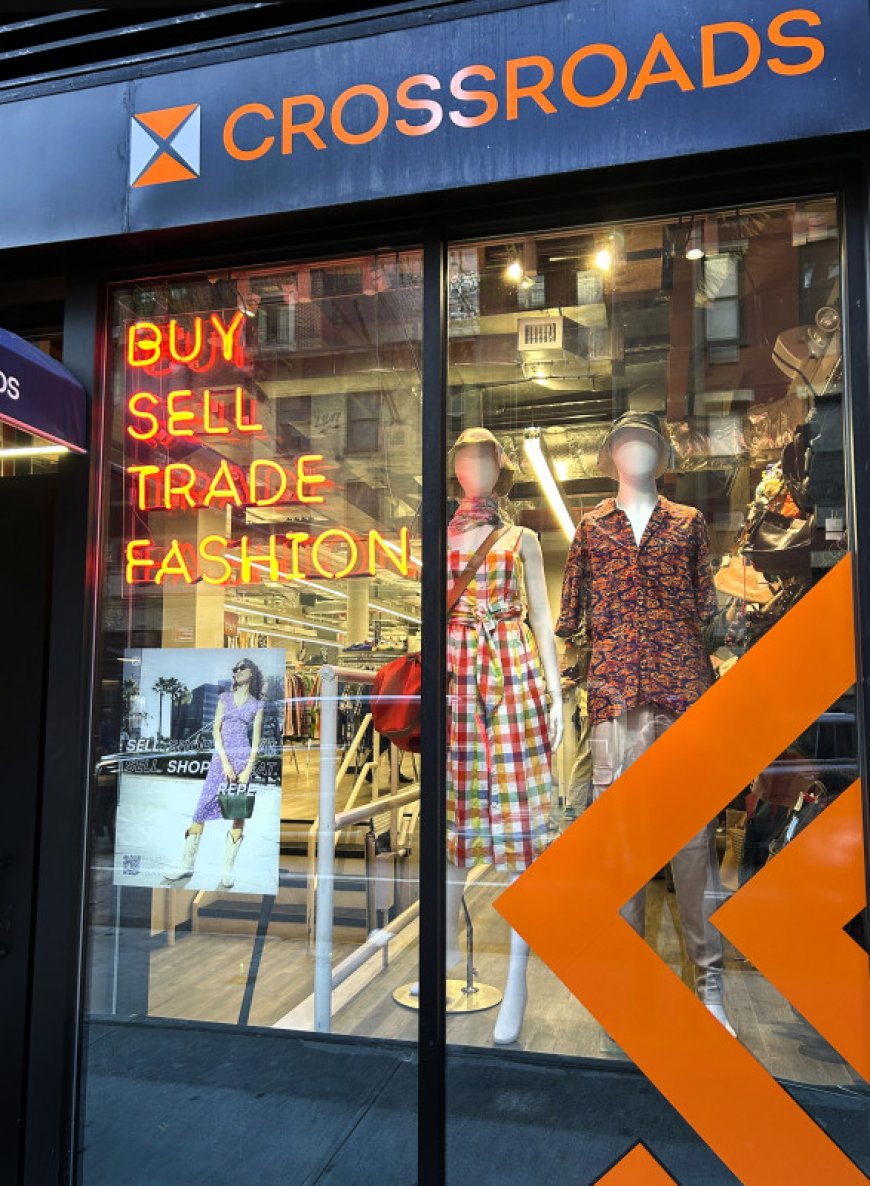Facebook and rivals face troubling obstacle in secondhand market
The secondhand economy is booming, but one issue still prevents many consumers from buying in.

Ikea, Shein, Zara, and H&M are global retail brands which have been criticized for years resulting from their center of attention on inexpensive, trendy goods, often crafted from unsustainable materials.
Fast fashion, specifically, has been linked to climate change, labor abuses, and economic instability, that would be why these brands seem to be taking a 2nd have a glance into their "disposable" goods.
Normally, these brands are all encouraging their customers to take part within the secondhand economy and making it less hard for them to accomplish that by setting up their very own peer-to-peer marketplaces the image of Meta Platform's (META) Facebook Marketplace, eBay (EBAY) , and Craigslist.
Don't omit the move: Subscribe to TheStreet's free every day newsletter
Customers can shop online through H&M's "Preloved," or Zara's "Pre-Owned," which lets customers buy, sell repair, or donate. Ikea's "As-is Online" permits people to view and reserve gently used products online.
Fashion-focused secondhand businesses to be able to not be limited to single brands changed into buzzy over the previous couple of years. Think publicly traded markets like The RealReal (REAL) , ThredUP (TDUP) and Poshmark (POSH) , which sell the total lot from luxury handbags from Louis Vuitton to outside products like Patagonia parkas, to name most effective some. Still, the web shopping experience at these businesses has some complications for consumers, in keeping with a new report.
Related: H&M is largely the most up-to-date victim of an alarming shift in consumer behavior
2d-hand consumers question what they see online
A September 2024 survey from Morning Consult detailed what motivates people to purchase secondhand—or now not.
Thirty-eight percent of the 2,024 U.S. adults surveyed said they do not shop secondhand because they are now not convinced they'll receive items in their promised condition. Another 31% said they didn't shop secondhand resulting from "frustrations with the return process," if one even exists. Another 27% said they didn't have confidence they would receive the items at all.
The report suggests online retailers should combat the bad reputation some online sellers have, earned or now not, to continue to grow their customer base.
And there are undoubtedly opportunities to capture more customers. In step with ThredUp's 2024 Resale Report, the secondhand apparel market will reach $350 Billion by 2028. Which is 3X the growth of the general apparel market.
Read more on secondhand retail:
- H&M is making a metamorphosis to produce you the possibility to thrill its eco-wide awake customers
- Cleaning Out Your Closet? These Are The Non-Luxury Brands Reselling For Most
- Goodwill makes a surprisingly up to date move
Secondhand retailers profit from growing new trend
A 2015 find out about found production and use of household goods and services and products were guilty for 60 percent of world greenhouse gas emissions. Obviously, one method to cut back this number is to produce and consume less.
Some online influencers have even tried to encourage their followers to purchase secondhand and consume less, though quite a ramification of them become profitable (and more than some of it) by selling products to their followers.
The "underconsumption" trend has been worldwide social media in most recent months. Take this post from Jess Cliftonn who says she is finding new passions to interchange her should shop.
@jess.cliftonn What freed me from the overconsumption loop became finding passions & creative outlets that replaced my should shop. Whatever you suspect you wish presently, you presumably don’t. Have faith in, we've the total lot we want presently to be happy on this moment
What's Your Reaction?



























































